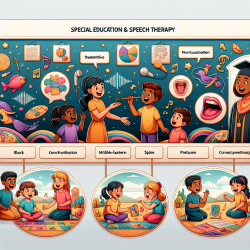Becoming a school psychologist in California is a rewarding career path that allows you to make a significant impact on the mental health and educational outcomes of students. Whether you are trained in-state or out-of-state, the process involves several steps and specific requirements. This guide will help you navigate through the necessary credentials and qualifications.
Requirements for In-State Trained School Psychologists
To obtain a Pupil Personnel Services Credential with a specialization in school psychology in California, individuals trained within the state must meet the following criteria:
- A baccalaureate degree or higher from a regionally accredited college or university (excluding professional education degrees).
- Completion of a post-baccalaureate degree study consisting of at least 60 semester units in a California Commission-approved professional preparation program specializing in school psychology. This program must include a practicum with school-aged children.
- Recommendation from a California college or university with a Commission-approved Pupil Personnel Services program specializing in school psychology. The recommendation will be submitted online by the institution.
- Completion of the Basic Skills Requirement (refer to Commission leaflet CL-667 for details).
- Completion of the Live Scan fingerprint process (form 41-LS).
- Payment of the application processing fee (refer to Fee Information leaflet CL-659). Applicants will be notified via email once the application has been submitted and is awaiting payment in a secured database.
Requirements for Out-of-State Trained School Psychologists
Individuals trained outside of California must satisfy the following requirements to obtain a Pupil Personnel Services Credential with a specialization in school psychology:
- A baccalaureate degree or higher from a regionally accredited college or university (excluding professional education degrees).
- Completion of a professional program of post-baccalaureate degree study consisting of at least 60 semester units specializing in school psychology, including a practicum requirement and supervised field experience with school-aged children. Programs accredited by the National Association of School Psychologists (NASP) meet this requirement.
- A letter verifying practicum and field experience on official letterhead from the college or university's education department must accompany the application packet.
- Verification of eligibility for the equivalent credential authorization (a photocopy of the out-of-state credential or an eligibility letter from the institution where the program was completed or the state agency responsible for issuing the certificate).
- Completion of the Basic Skills Requirement (refer to CL-667 for details). Out-of-state applicants who have not satisfied this requirement may contact their California employer about the possibility of obtaining a One-Year Nonrenewable (OYNR) Credential pending completion of the basic skills requirement.
- Submission of a completed application (form 41-4) and, if not previously submitted to the Commission, a completed Live Scan receipt (form 41-LS). Out-of-state residents must submit two fingerprint cards (FD-258) in lieu of a Live Scan receipt, accompanied by current fingerprint processing fees.
- Payment of the application processing fee (refer to Fee Information leaflet CL-659).
Continuing Education and Scope of Practice
School psychologists must renew their credential every five years through the website, but there are no continuing education requirements for renewal.
The SEA credential allows school psychologists to provide services in public schools (K-12), early childhood and pre-K settings, and private and charter schools. They can also offer contract services in schools. However, to practice outside of school settings, one must become a Licensed Educational Psychologist by obtaining an additional license from the Board of Behavioral Sciences.
Additional Duties for Licensed Educational Psychologists
Licensed Educational Psychologists can perform the following additional duties:
- Educational evaluation
- Diagnosis of psychological disorders related to academic learning processes
- Administration and interpretation of diagnostic tests related to academic learning processes
- Providing psychological counseling for individuals, groups, and families
- Consultation with educators and parents on social development and academic difficulties
- Conducting psychoeducational assessments for identifying special needs
- Developing treatment programs for adjustment problems
- Coordinating intervention strategies for individual crises
- Supervising Associate Professional Clinical Counselors, Associate Clinical Social Workers, and Associate Marriage and Family Therapists providing educationally related mental health services
For more information, please follow this link.










